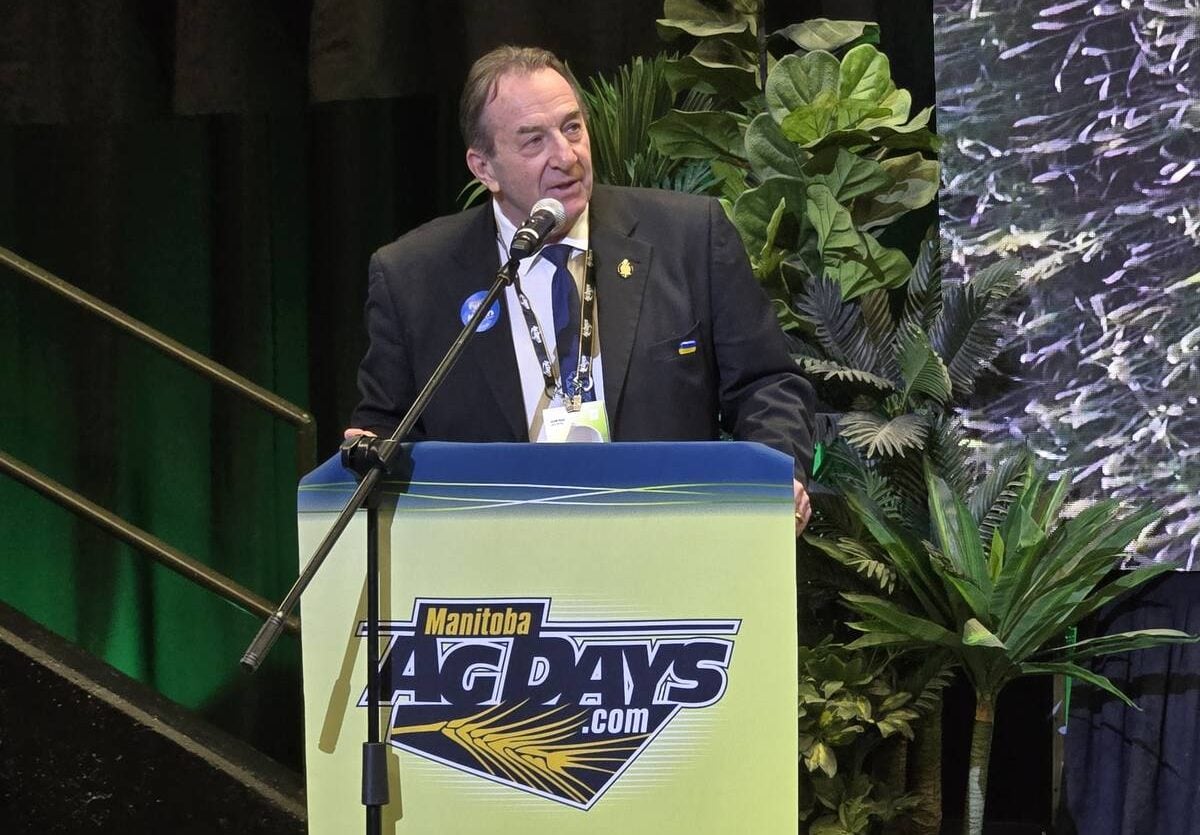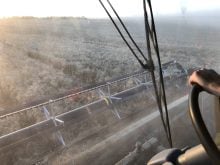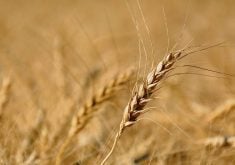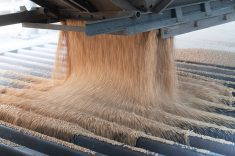The Western Canadian Wheat Growers wants to see a cut to Canadian Grain Commission (CGC) fees and the full and immediate refund to farmers of millions of dollars in surplus CGC earnings.
That call, contained in a press release issued by the group Jan. 3, seemed unlikely as of press time.
“With approximately $100 million of farmers’ hard-earned money having piled up into this enormous surplus, it’s time to immediately give growers a break and reduce these user fees,” Levi Wood, WCWGA president said in the release. “User fees are supposed to help pay for their operations, but a nine-figure surplus in user fees is shocking.”
Read Also

Manitoba crop insurance expands wildlife coverage, offers pilot programs
New crop insurance coverage is available to Manitoba farmers.
The WCWGA has launched a petition asking for an immediate reduction in user CGC fees and a refund of the surplus back to farmers.
Canada’s grain industry will be consulted this winter on the CGC’s fees, but any changes won’t take effect until Aug. 1, 2018, Remi Gosselin, the CGC’s manager of corporate information said in an interview.
“We made commitments in the past to stakeholders that we would review their fee schedule every five years,” he said. “We would like to consult with grain industry stakeholders on our next schedule of proposed fees.
“Fee changes require regulatory changes and cannot occur without going through the regulatory process. At this point if the CGC attempted to lower fees early it would take several months to make changes and we are already planning on reviewing all our fees in early 2017.”
Lower fees are among the possibilities to be considered Gosselin said.
“We are also currently examining potential options to use the accumulated surplus and it will include an assessment of stakeholder views on the various possibilities,” he said. “At this point we can commit to ensuring that the surplus will be used in a manner that advances interests of the grain sector as a whole.”
Agriculture Minister Lawrence MacAulay “looks forward to sitting down with the new grain commissioners and exploring options related to user fees…” one of his officials said in an email.
“These user fees were put in place by the previous government.”
Gosselin said the CGC’s current operating surplus is around $100 million.
As of March 31, 2015 the CGC had a $63.3-million surplus — enough to operate for a year.
Then CGC commissioner Murdoch MacKay told the Winter Cereals Manitoba annual meeting March 16, 2016, relief was on the way. In an interview later he said fees would likely be reduced.
Aug. 1, 2013 Canada’s grain industry, including farmers, was complaining bitterly as CGC user fess, on average, jumped 44 per cent after the Conservative government ordered the CGC, which has a statutory duty to protect Canada’s grain quality, to be self-sufficient.
The CGC’s official outward inspection fee, which pays for part of the renowned ‘Certificate Final’ guaranteeing customers’ grades, tripled to $1.60 a tonne.
Although most CGC fees are paid by grain companies, it’s believed most of the cost is passed on to farmers.
Just as CGC fees increased so too did Canadian grain exports. As a result CGC revenues exceeded expectations, MacKay said.
The per-tonne fees introduced in 2013 were based on the CGC ’s estimate that it would inspect 23.3 million tonnes of export grain annually, not including shipments to the United States, which rarely move through export terminals. Canadian grain exports (excluding to the U.S.) averaged 23.3 million tonnes from 1993-94 to 2009-10.
During the first two crop years after the new fees were implemented, Canadian grain exports (excluding to the U.S.) averaged almost 36 million tonnes — 13 million more than expected.
During the previous five crop years (2012-13 to 2008-09) exports (excluding to the U.S.) averaged 28.2 million tonnes or almost five million tonnes more than the CGC projected.
“It’s a fair point that export volumes have been higher in the past few years than first estimated, so the volume of fees has also been much higher, but that’s no reason to now hoard farmers’ money,” Matt Sawyer, WCWGA Alberta director, said. “However, it is a great reason to now reduce these user fees, which are clearly out of line for their intended purpose of those operations and it’s time to refund the surplus, giving the money from growers back to the growers.”

















